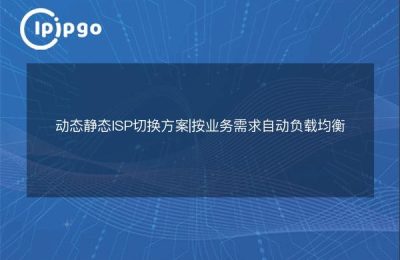
In the complex world of networking, choosing the right IP Proxy is like choosing a right partner for your network journey. Dynamic IP proxies and static IP proxies are different, not only in terms of how often the IP address changes, but also in terms of the different benefits they can provide. In this article, we'll take a closer look at the differences between these two types of proxies to help you make an informed choice.
What is a Dynamic IP Proxy?
Dynamic IP Proxy is a proxy service that can change IP address periodically. Like a fickle dancer, it can flexibly cope with different network scenarios and constantly change its own "dance steps".
Advantages of Dynamic IP Proxy
Enhancing Privacy Protection
As IP addresses are constantly changing, dynamic IP proxies are able to protect users' online privacy to a certain extent. It's like a cloak of invisibility in the online world, reducing the risk of being tracked.
Adapting to diverse needs
Dynamic IP proxies are suitable for scenarios that require frequent IP changes, such as large-scale data capture or test environments where multiple users need to be simulated. Like a versatile actor, it is able to show different roles on different stages.
What is a static IP proxy?
Static IP proxies, on the other hand, provide a fixed and unchanging IP address. Like a standing beacon, it provides a stable and reliable cornerstone for network activity.
Advantages of Static IP Proxy
Provide stable connection
Static IP Proxy provides users with a constant and stable network connection, avoiding connection interruptions caused by frequent IP address changes. Like a lighthouse standing in the storm, it guides your way.
Easy remote access
Since the IP address remains unchanged, a static IP proxy is more suitable for scenarios that require a long-term stable connection, such as remote office or server management. It's like having a fixed harbor in the vast ocean of network, and you are always welcome to return to the ship.
How to choose the right IP proxy?
Choose according to the usage scenario
- If your network activities require frequent IP changes, or if you need to simulate access from multiple locations, a dynamic IP proxy may be more suitable for you.
- If you need a stable connection for remote access or fixed IP application scenarios, a static IP proxy would be a better choice.
Consider security and privacy
Whether you choose a dynamic or static IP proxy, make sure your proxy service provider offers good security and privacy protection. Just like choosing a trusted traveling companion, make sure that your online journey is safe and secure.
summarize
Dynamic IP proxies and static IP proxies each have their own unique benefits, and the key is to make a choice based on your specific needs. We hope this article has provided you with a clear guide to become more comfortable exploring and discovering the digital world. Whether you're a tech novice or a networking veteran, understanding the difference between these two proxies is a critical step in improving the efficiency and security of your network.








